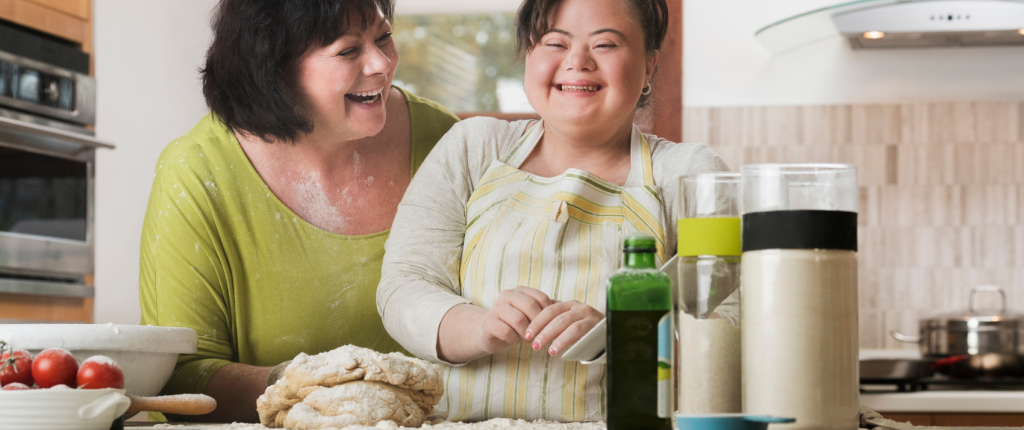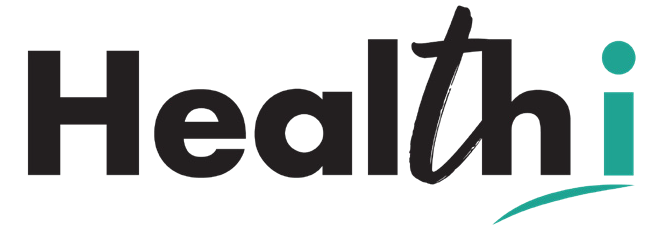Celebrating National Down Syndrome Day in South Africa: The Power of Inclusion, Health, and Wellness
This October 20, as South Africa joins the global community in recognising National Down Syndrome Day, we honour the beauty and resilience of individuals with Down syndrome. This day is an opportunity to reflect on their contributions to our society, spread awareness, and emphasise the importance of supporting their health and well-being. One of the most impactful ways to do this is by encouraging active, healthy lifestyles that empower people with Down Syndrome to thrive in every aspect of life.

From an early age, children and adults with Down Syndrome face unique health challenges. Common issues such as low muscle tone, heart conditions, and increased risk of obesity can hinder their ability to stay active and healthy. Yet, with the right support, these individuals can lead fulfilling, active lives, and gain benefits that extend beyond physical health—improving their mental well-being, social connections, and even cognitive abilities.
So, what role does physical activity play, and how can we, as a society, ensure that those with Down Syndrome have access to opportunities that promote their health?
1. Physical Health Benefits: Building Strength and Reducing Health Risks
People with Down Syndrome often have hypotonia (low muscle tone), which can make movement and coordination challenging. Regular physical activity, however, can help build muscle strength and improve balance, enhancing their ability to perform daily activities with greater ease. For example:
- Heart Health: Many individuals with Down Syndrome are at increased risk of congenital heart issues. Cardiovascular exercises like walking, dancing, and swimming can strengthen heart muscles, improve circulation, and boost overall cardiovascular health.
- Weight Management: Obesity is a common concern, as people with Down Syndrome may have slower metabolisms. Regular activity can help regulate weight, reduce the risk of diabetes, and maintain joint health, which is vital for long-term mobility.
- Improved Coordination and Flexibility: Physical activity enhances motor skills and flexibility, helping people with Down Syndrome develop body awareness, which is essential for balance and reducing the risk of injuries.
2. Mental Health and Self-Confidence: The Psychological Impact of Staying Active
Physical activity does wonders for mental health, and individuals with Down Syndrome are no exception. Studies show that active lifestyles can help alleviate anxiety, boost mood, and increase resilience.
- Building Self-Esteem: Exercise provides a sense of accomplishment. For people with Down Syndrome, each milestone—whether learning to swim, completing a dance routine, or scoring a goal in soccer—can be incredibly empowering. The boost in self-confidence is priceless, helping them approach other areas of life with positivity and self-assurance.
- Reducing Anxiety and Stress: Physical activity releases endorphins, which help to manage stress levels and combat anxiety. Many individuals with Down syndrome are highly sensitive to their environments and can feel stressed by social or sensory demands. Movement and exercise provide an outlet to release this tension, leading to a calmer, more relaxed demeanour.

3. Social Benefits: Fostering Inclusion and Building Relationships
Being part of sports or activity groups can help people with Down syndrome forge meaningful connections. Social activities like team sports or group classes help foster inclusion and combat the isolation that many individuals with Down syndrome face.
- Making Friends and Building Community: Physical activities—whether it’s a local soccer league, a dance class, or a swimming group—allow for social interactions that lead to friendships. This sense of belonging can make a tremendous difference in the lives of people with Down syndrome, enriching their emotional and social well-being.
- Encouraging Teamwork and Communication: Participating in group activities can teach valuable communication and teamwork skills. People with Down Syndrome learn to navigate social dynamics, practice patience, and celebrate team victories, all of which are essential for their integration into society.
4. Cognitive Development and Focus: The Role of Physical Activity in Mental Agility
Studies indicate that regular physical activity can positively impact cognitive functions, such as memory, attention, and learning. For people with Down syndrome, staying active can help with:
- Improving Focus and Attention: Activities that require coordination, like dance or sports, can improve attention span and concentration, leading to better learning outcomes and task engagement.
- Boosting Memory and Problem-Solving: Engaging in activities that challenge memory and encourage problem-solving—like sports or dance routines—stimulates the brain. These cognitive benefits translate into everyday situations, such as remembering routines and interacting effectively with others.
5. How We Can Promote Health and Activity for People with Down Syndrome in South Africa
As South Africa celebrates National Down Syndrome Day, we must acknowledge that achieving these benefits requires community involvement. Here’s how we can take action:
- Inclusive Sports Programmes: Expanding accessible sports leagues or creating inclusive fitness classes ensures that people with Down syndrome have the resources to stay active.
- Public Awareness Campaigns: Educating the public on the unique needs and capabilities of individuals with Down syndrome helps create supportive communities that champion inclusivity.
- Providing Resources and Support for Families: Offering families information, resources, and support systems can empower them to incorporate healthy habits into daily routines.
- Advocating for Policies that Promote Health: Advocating for policies that support accessibility, such as funding for specialised coaches and physical therapy programmes, can open doors for many individuals with Down syndrome to participate in regular physical activities.

A Call to Action: Empowering a Healthier, More Inclusive Future
This National Down Syndrome Day, let’s reflect on the power of physical activity and the profound impact it has on the lives of people with Down syndrome. By supporting their physical health, we uplift their mental well-being, enhance their social inclusion, and promote lifelong cognitive benefits. As we move forward, let’s remember that creating an inclusive South Africa means actively working to ensure that everyone, regardless of ability, has the opportunity to lead a fulfilling and healthy life.
This October 20, let’s celebrate the achievements, resilience, and joy of individuals with Down syndrome. By nurturing their physical and emotional health, we can build a more inclusive, empowered future for all.
Disclaimer – Healthi and its associates offer health and fitness information and is designed for educational and entertainment purposes only. You should consult your physician or general practitioner before beginning a new fitness program. You should not rely on this information as a substitute for, nor does it replace, professional medical advice, diagnosis, or treatment. If you have any questions or concerns about your health, you should always consult with a physician, general practitioner, or other qualified healthcare professional. Do not disregard, avoid or delay obtaining medical or health-related advice from your healthcare professional because of something you may have read in our publications or lectures. The use of information provided through the urban wellness service is solely at your own risk and is not medical or healthcare advice.
